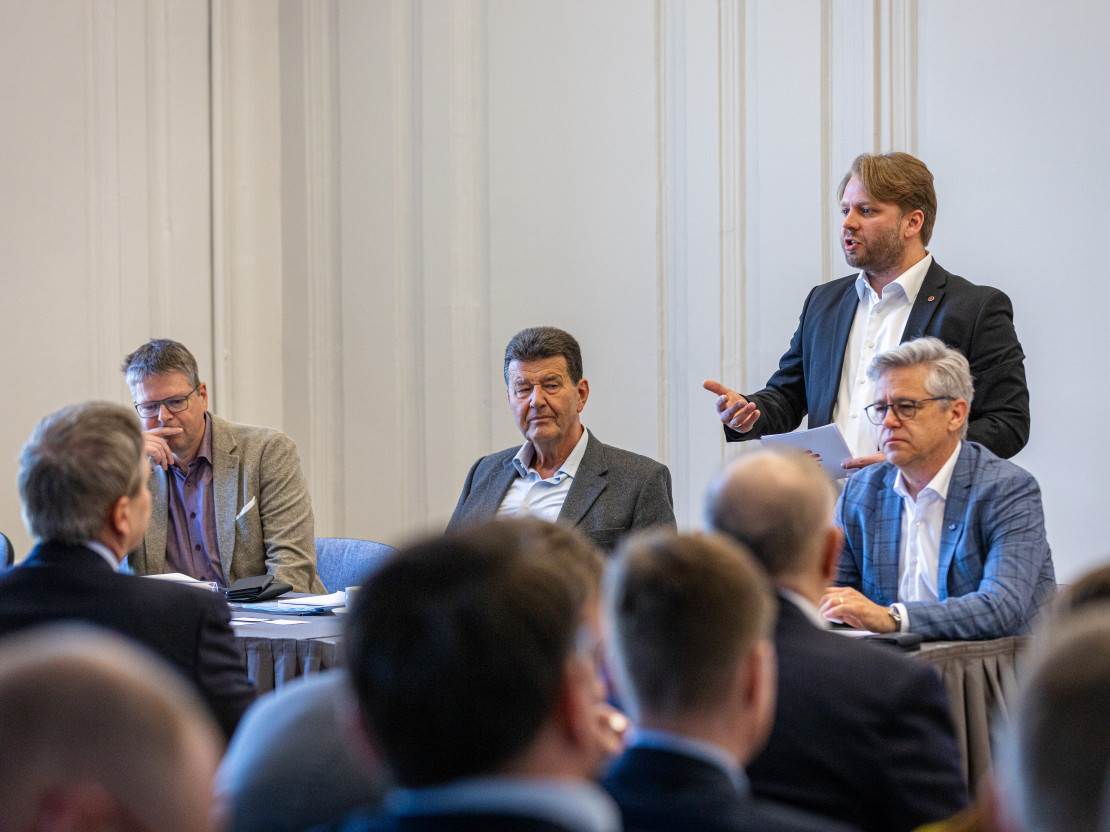
On April 10–11, the International Rail Freight Business Association (IBS) congress was held at “Latvijas dzelzceļš” (Latvian Railways), where discussions focused on new cooperation models for Baltic rail freight. The goal was to strengthen rail freight connections between the Baltic States and other European countries.
Opening the congress, IBS Chairman Olaf Krüger said: "When organizing such congresses and thematic sessions, we carefully choose the locations – they take place where we see potential to support business and foster the development of business relationships. Currently, not only the Baltic countries but also Finland and other regional countries face similar challenges. Of course, the war launched by Russia has a significant impact, but it's not the only factor. The differing rail systems – such as varying track gauges and wagon standards – continue to limit connectivity and pose obstacles to freight transport. Therefore, the key task of this Congress is to offer ideas, solutions, and showcase new development opportunities – both from the private sector and from the perspective of public institutions. This approach is IBS's strong point – we bring together various stakeholders and find business-oriented solutions."
Rinalds Pļavnieks, Board Member of "Latvijas dzelzceļš", emphasized: "Like many other railways in European countries, we in the Baltics are currently undergoing a transformation – searching for new operational directions with future potential. Geopolitical changes in the region and shifts in supply chains have already significantly changed the operation of the railway sector, both in Latvia and the wider region. We have moved from being an East–West freight transit corridor to becoming a provider of passenger, freight, and military cargo transportation. Although cooperation between the three Baltic States and on a broader European level is already happening, the key value of such an event lies in developing new cooperation models suited to today’s situation, which will help achieve the goal – to increase the volume of cargo transported by rail."
The congress brought together more than 60 participants representing freight carriers, logistics companies, port terminals, freight forwarding firms, and manufacturing businesses from the Baltic States, Finland, Germany, and other countries.
IBS (International Rail Freight Business Association) is an international association of rail freight companies founded in 1996. It unites stakeholders in the European rail sector. Its main goal is to promote international rail freight transport, improve the efficiency of logistics chains, and foster cooperation between companies and institutions.
